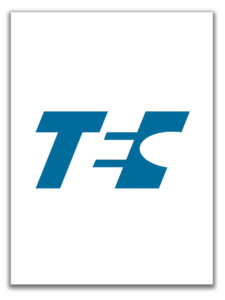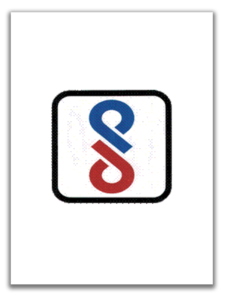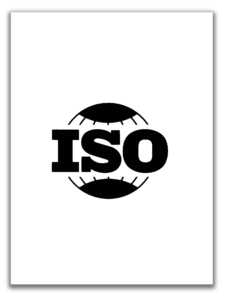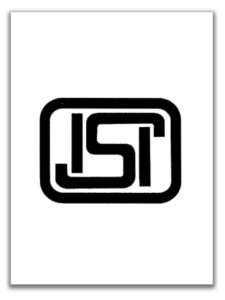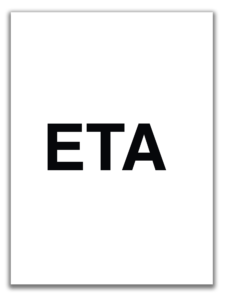

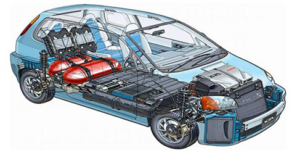


The Product Certification Schemes of BIS aims at providing Third Party assurance of quality, safety and reliability of products to the customer. Presence of BIS certification mark, known as Standard Mark, on a product is an assurance of conformity to the specifications. The manufacturer is permitted to self certify the licenced products after ascertaining its conformity to the Standard. Through its surveillance operations, the Bureau maintains a close vigil on the quality of certified goods
[bg_collapse view=” link-list” color=”#72777c” icon=”arrow” expand_text=”Show More” collapse_text=”Show Less” ]
Step 1 – Perform Testing of the product in India/ In-house as per Indian Standards.
Step 2 – Prepare application to BIS for grant of license (Including the test report from Step 1).
Step 3 – BIS accepts the application and visit the plant.
Step 4 – During plant audit BIS official draws samples and send them to India for testing.
Step 5 – If Test results for samples from plant and plant quality audit is good. BIS grants the License to mark ISI on product . License number is given once we pay the marking fee and license fee.
Step 6 – Initial License is valid for 1/2 Years and can be renewed further for one year or up to 5 years after paying advance marking
Timeline It varies from product to product . Generally it is 4 to 6 months
Important Points of ISI Mark Certification
- The seller must mention on the bill that product is ISI mark certified.
- If the quality of the products is not up to the mark then complaint in BIS.
- BIS keeps a check on the manufacturers whether they are following the ISI guidelines or not.
- The investigation is done for three months in case of a complaint made against a manufacturer.
Benefits of ISI Mark Product
- When a product is ISI marked, it is assured that the manufacturer has followed all the guideline of the certification and the product is of best quality.
- The manufacturers can also reduce their losses with reduction in rejection of the products due to bad quality.
- The ISI mark products have better performance as well as long service life as compared to the products that do not have ISI mark.
- What does ISI stands for?The ISI mark certification is a short form for Indian Standard Institute which is former name for Bureau of Indian Standards. The main aim of the BIS is to keep a check on the activities of the manufacturing companies that provide consumer and industrial goods. The BIS makes sure that all the procedure essential or the quality assurance of the products are being followed and there is no chance of any defects and quality flaws in the products that are delivered to the customers. The ISI mark certification is affixed on a product after it has been thoroughly tested and approved by an NABL certified laboratory and approved by BIS. Once the laboratory gives approval to the quality of the products, the BIS gives the certification to the products and the products can be sold in the market with an ISI mark on it. The ISI mark is one of the most recognized and acclaimed sign of best quality in India and Indian subcontinent. The BIS keeps a check on the ISI certified companies whether they are following the guidelines of the certification or not. In addition to that, the manufacturers can also have many benefits from the certification such as increased sales and reduced rejections.
Procedure for ISI marking
Normal ProcedureIn the normal procedure, the client has to fill in the application form and then submit in to the nearest branch of BIS along with the required fees for the certification. After the application has been submitted, the officials visit the factory for the evaluation of the faculties and manufacturing processes. In this visit, the accuracy of the manufacturing process along with the capability of the manufacturer to produce adequate amount of products is assessed. After the visit, the products are sent to the laboratories for testing. Once testing is done, the test reports of the products are released by the laboratory. On the basis of this report, the certification is granted to the company.Simplified ProcedureIn the simplified certification procedure, the applicant has to take the product himself to the testing laboratory for furnishing the test report. The laboratory must be approved by the BIS and the sample must be accompanied by the application for certification. If the test reports of the laboratory are found satisfactory along with other documents, the BIS grants the certification after paying a visit to the factory. The applicant can also get the application and other documents attested by a chartered engineer and submit it to the BIS to get the certification.Testing of Products
The product testing for the ISI certification can be performed in any of the laboratories that have been approved by the BIS. The BIS has a vast network of approved laboratories that can be approached for product testing for ISI marking. The laboratories have essential testing and calibration instruments that are capable of through testing of the products for quality, reliability and durability of the products. The testing procedure is not only best for ISI certification but it is also good for the manufacturers as it tells about the quality and accuracy of the manufacturing process and ensure the least number of rejections of the products.
Advantages of ISI mark
- Better quality of products delivered to the customers.
- Lest wastage of resources such as raw materials, labor etc.
- Reduced rejections and reduction of losses.
- Better customer satisfaction hence better business opportunities.
- Better quality and safety assurance of the products.
[/bg_collapse]
CRS scheme is basically self declaration of conformity scheme and it was started in year 2012 to protect Indian consumers from substandard and inferior products. It is mainly applicable for Electronic and IT products . Recently BIS has re engineered this scheme and launched Smart Registration for ease of operation for the foreign and domestic manufacturers.
[bg_collapse view=” link-list” color=”#72777c” icon=”arrow” expand_text=”Show More” collapse_text=”Show Less” ]
Step 1 – Perform Testing of the product in India in BIS approved lab as per Indian Standards.
Step 2 – Submit application with documents to BIS for grant of registration (Including the test report from Step 1) along with applicable charges.
Step 3 – BIS will process the case and grants registration if everything in order
Step 4 – Initial certificate is valid for 2 Years and has to be renewed after every two years.
Timeline for new registration process is max. 2 months.
For Inclusion Std time is 4-6 weeks but for PSCA it is max two weeks.
[/bg_collapse]
Any equipment, which works on regulated bandwidth & are cable of connecting to Indian telecom Network , requires a Import License from Wireless Permit Control, Department of Telecommunication, this is applicable both for imported goods and india manufactured goods. this is Model wise/ quantity based license, the validity of the license is for 6 months. Any equipment which require Import license, first ETA has to be obtained, then apply for Import License along with copy of ETA. Documents Requirements:- – ETA Approval from Telecom – Product catalogue – RF test reports
[bg_collapse view=” link-list” color=”#72777c” icon=”arrow” expand_text=”Show More” collapse_text=”Show Less” ]
[/bg_collapse]
AIS Certification
Under Central Motor Vehicle Rules AIS certification is required for vehicle components like tyres, seat belts, horns, vehicle lights etc etc There are notified agencies under CMV Rule 126 for issuance of Type approval certificate ( TAC ) and conformity of Production ( CoP ) certificate.
[bg_collapse view=” link-list” color=”#72777c” icon=”arrow” expand_text=”Show More” collapse_text=”Show Less” ]To this end, the erstwhile Ministry of Surface Transport (MOST) has constituted a permanent Automotive Industry Standards Committee (AISC) vide order No. RT11028/11/97-MVL dated September 15, 1997. The standards prepared by AISC will be approved by the permanent CMVR Technical Standing Committee (CTSC). After approval, the Automotive Research Association of India, (ARAI), Pune, being the Secretariat of the AIS Committee will published this standard. For better dissemination of this information ARAI may publish this document on their Website. [/bg_collapse]
Any equipment, which works on notified bandwidth & are cable of connecting to Indian telecom Network , requires one time approval from Department of telecommunication. Equipment Type approvals are given for each model, this is applicable both for imported goods and india manufactured goods. Document Requirements:- – Product catalogue – RF test reports
[bg_collapse view=” link-list” color=”#72777c” icon=”arrow” expand_text=”Show More” collapse_text=”Show Less” ] The Government of India felt the need for a permanent agency to expedite the publication of standards and development of test facilities in parallel when the work on the preparation of the standards is going on, as the development of improved safety critical parts can be undertaken only after the publication of the standard and commissioning of test facilities. To this end, the Ministry of Surface Transport (MOST) has constituted a permanent Automotive Industry Standard Committee (AISC) vide order No.RT-11028/11/97-MVL dated September 15, 1997. The standards prepared by AISC will be approved by the permanent CMVR Technical Standing Committee (CTSC). After approval, the Automotive Research Association of India, (ARAI), Pune, being the secretariat of the AIS Committee, has published this standard. For better dissemination of this information ARAI may publish this document on their Web site. The CMVR stipulates requirements that various safety critical components shall comply with notified standards to ensure the safe functioning of automotive vehicles. As per the present provisions in CMVR, this is ensured at the time of certification of a model by the Test Agencies followed by a self-certification by the vehicle manufacturers on an on-going basis. However, a need is felt to bring in a better control on this important issue. There is also a need to bring about a control on the use of such safety critical components made available in the after-market also, which the CMVR does not address at present. It is necessary, therefore, to have a marking scheme for safety critical components specified in CMVR.[/bg_collapse]
BEE Certification
BEE sets the standards and label for marking star-rating of various appliances. They also define the testing and certification procedures for all kinds of appliances. When manufacturers make a new model and they want to get their product certified, they do the tests for their appliance as per the procedures designed by BEE and apply for star certification with the data from the tests. Based on the test data BEE provides a star rating for appliances. BEE keeps on refining the standards and certification procedures periodically
[bg_collapse view=” link-list” color=”#72777c” icon=”arrow” expand_text=”Show More” collapse_text=”Show Less” ]
A company mainly requires a BEE certificate to prove their BEE status in the market. The certificate is valid for a year and it needs to be renewed every year based on the BEE implementation during the period. It helps the company in both regulatory and promotional activities. In regulatory it sets performance standards for appliances and designs labeling scheme for the same. The star rating on various appliances like AC, refrigerator, Fans, Pumps, Water Heaters, etc is mandatory required to have BEE rating. It helps in developing norms for energy consumption. In the promotional activity, it helps in creating promotional programs for energy efficiency and to develop testing facilities. It also helps in attracting the customers by achieving the highest level of BEE ratings.
[/bg_collapse]
MANDATORY TESTING & CERTIFICATION FOR TELECOMMUNICATION EQUIPMENT ( MTCTE) – Covers all equipment’s capable of being connected to INDIAN TELECOM NETWORK Certification process endeavors to encourage:
that any telecom equipment does not degrade performance of existing network to which it is connected; safety of the end–users; protection of users and general public by ensuring that radio frequency emissions from equipment do not exceed prescribed standards; that telecom equipment complies with the relevant national and international regulatory standards and requirements. [bg_collapse view=” link-list” color=”#72777c” icon=”arrow” expand_text=”Show More” collapse_text=”Show Less” ]APPLICABILITY
Any Original Equipment Manufacturer (OEM)/ importer/ dealer who wishes to sell or import any telecom equipment in India, shall have to obtain Certificate from Telecommunication Engineering Centre (TEC) and mark or affix the equipment with appropriate Certification label
General Certification Scheme (GCS)
Under this scheme, applicant shall be required to submit test wise compliance along with test reports, in respect of parameters included in ERs, from any designated CAB or recognized CAB of MRA partner country. The test results shall be evaluated for compliance against respective ERs.
Simplified Certification Scheme (SCS)
Under this scheme, applicant has to submit a test wise compliance sheet, along with a Self-Declaration of Conformity (SDoC), in respect of parameters included in ERs.
[/bg_collapse]

